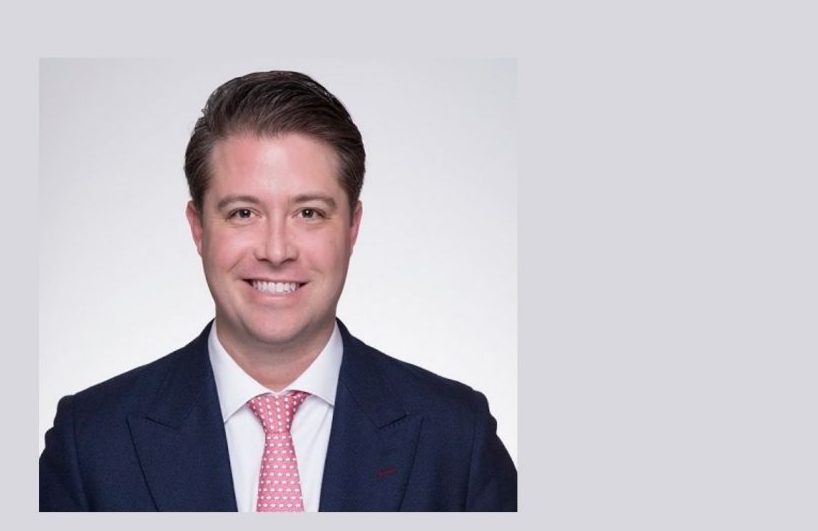How I used my MBA as a springboard into my first Asian financial services job
Canadian finance professional Stuart Mercier is fulfilling his ambition to live and work in Asia. And it’s all down to his MBA


Canadian finance professional Stuart Mercier got his first taste of Asia when he visited Hong Kong as a teenager. More than 20 years later, Mercier is now fulfilling his ambition to live and work in the region. He’s already done a successful stint in Hong Kong with Brookfield Asset Management and is currently a senior vice president with the firm in Shanghai.
“When I came to Hong Kong in the 90s, even landing at the old Kai Tak Airport was exciting – it was so close to all the skyscrapers,” says Mercier. “There was a buzz about the city and I was hooked. Ever since then I’d always wanted to return.”
Mercier spent most of his early career in the Toronto headquarters of real estate investment giant Oxford Properties. “Although I was working in the investment industry, my undergraduate degree was in political science. Because of that I’d always planned to further my business and finance education,” he says.
By 2010, when Mercier started looking at MBA programmes, one thing soon became clear: he wanted to study in Asia. “In addition to wanting to return to Asia personally, Asia had become the driver of global economic growth. It was natural for me to then look for an MBA that would help me further my career in the region.”
After much research, Mercier enrolled in Hong Kong University’s full-time MBA programme, which has now been ranked number one in Asia for the past seven consecutive years by The Economist. In the latest Financial Times Top MBAs for Finance list, the HKU MBA also ranks in the top 12 in the world and is the leading Asian school.
Like all HKU MBA students, Mercier spent an introductory month at the China Immersion Programme in Beijing, which helps full-time MBA students to develop Chinese-language skills, better understand Mainland business systems, and expand their networks across Asia.
“For someone looking to understand the region, and China in particular, getting this immediate exposure was amazing,” says Mercier. “We studied Mandarin and had open discussions with senior executives at domestic and multi-national companies about their strategies in China.”
After Beijing, Mercier did a nine-month stint at HKU’s Hong Kong campus. “The best thing about my time there was my classmates – they were from many different backgrounds but had a shared interest in Asia. This diversity replicated what it’s like to work in Hong Kong,” he says.
Mercier particularly enjoyed learning from other students in small case-study groups. HKU is pioneering the use of Asian case studies, focused on major companies in the region such as Alibaba and Air Asia.
“In these teams you get a great blend of nationalities and personalities. You build an appreciation for non-verbal cues and the need to be culturally aware in a global business environment,” says Mercier. “We had the same materials, but the takeaways were very different. So you start to expand your own mindset and understanding of those around you,”he adds.
Full-time MBA students at HKU take 11 core courses (including corporate finance, managerial economics, and business data analysis) while on campus in Hong Kong. They can then choose from several elective modules, such as the emergence of fintech and its impact on global finance and banking.
Mercier says as a student wanting to work in Asia after graduation, the course on Asian business and economies was among his favourites. It hones in on topics like cross-cultural negotiation, Asian culture and branding, and high-technology industries.
“There’s a strong Asia focus to the teaching at HKU, which is hard to find elsewhere and which suited my career objectives,” says Mercier.
For the final four months of the 14-month full-time MBA, students can opt to study at London Business School, Columbia Business School in New York, or Fudan University in Shanghai.
Mercier chose the ‘London track’ and studied at LBS. “Spending time at two of the world’s top business schools was an incredible experience. I enjoyed the best of both worlds – Asia and global-focused teaching.”
During the MBA, Mercier also did a part-time internship at a real estate advisory boutique in Hong Kong. The firm then gave him a permanent position when he graduated. “I was experienced in real estate, I was a known quantity to them thanks to the internship, and I had Asian market knowledge from the programme. The HKU MBA was a huge leg-up helping to pivot my career to Asia,” says Mercier.
Overseas students from Hong Kong universities are also entitled to one-year work visas, which means companies don’t need to sponsor their employment initially. “If I’d done an MBA in North America, finding a job in Hong Kong afterwards would have been more difficult given the immigration considerations.”
Mercier joined Brookfield Asset Management, an alternative asset management firm, in 2012 in Hong Kong. Three years later he helped to set up the company’s Shanghai office, now its regional head office.
“The management skills I learned from the HKU MBA – leadership, mentorship – are now helping me tremendously here in China,” says Mercier. “I’m particularly sensitive to managing across cultures thanks to the diversity of perspectives I was exposed to.”
If you want to use an HKU MBA as a springboard into an Asian finance job, Mercier has this advice: “Network with HKU alumni and with the Hong Kong business community during the course. The degree gives you a great opportunity to plug into this broad and successful community.”













